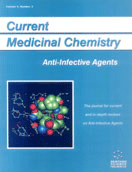Abstract
Phenothia zines and related compounds are tricyclic drugs used in psychiatric treatments as antidepressant, anxiolytic and antipsychotic. They accumulate in brain, provoking dopamine receptors blockade. They also have antiemetic and antihistaminic effects and many biological activities. WHO promotes the development of a single treatment for African Trypanosomiasis, Chagasdisease and Leishmaniasis. The features of the organisms that produce these diseases, the knowledge of their biology and the sequenced of the three parasites genomes, provide the basis for identifying common metabolic pathways that can provide new drug targets. Such target must be characteristic of these parasites, but absent or altered in the mammalian host. The trypanothione reductase, enzyme of the redox defense system, present in these tripanosomatides has been widely identified as a drug target. It is irreversibly inhibited by peroxidase / H2O2 / phenothiazine systems depending on the phenothiazine structure and concentration. We have studied the effect of some phenothiazines and related compounds upon the Trypanosoma cruzi, causative agent of Chagasdisease. The drugs currently used for treatment have high toxicity and frequently parasites appear resistant to them. Phenothia zines pr oduce d trypanothione reductase inhibition and other trypanocidal effects upon T. cruzi such as anticalmodulin action, disruption of mitochondria and cell membrane disorganization. This tricyclic drugs were also effective in treatment of different T. cruzi strains infected mice, since they modified the natural evolution of the infection; cardiac function and survival of infected and treated animals were not different from non-infected. Phenothiazines and related compounds are promising trypanocidal agents for treatment of Chagasdisease.
Keywords: phenothiazines and related compounds, t. cruzi, chemotheraphy, chagas disease, chagasic cardiomyophaty
 2
2

